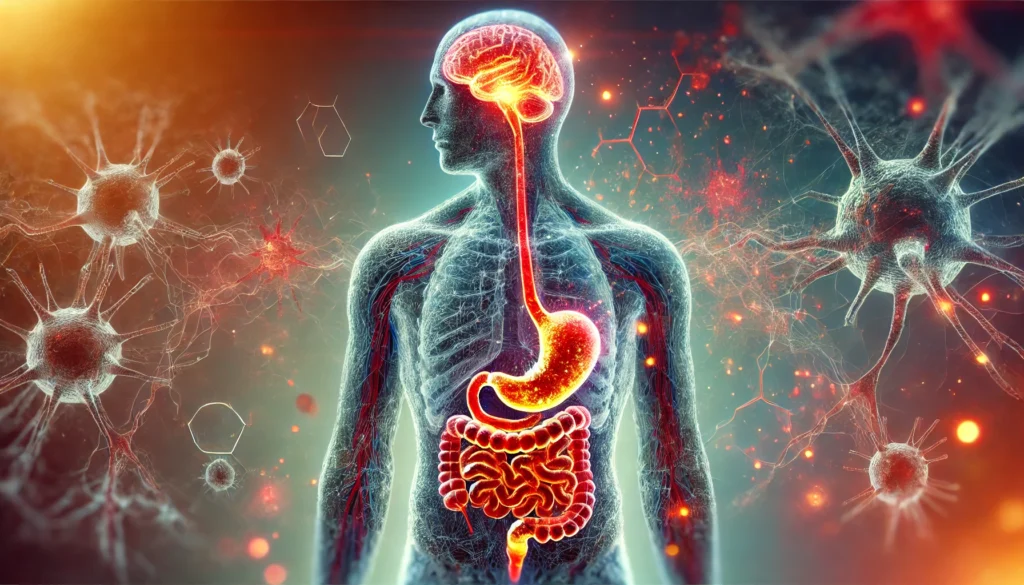Introduction
Confusion and fatigue are symptoms that many individuals experience at some point in their lives, yet they are often brushed aside as minor inconveniences. However, when these issues persist or worsen, they may indicate deeper physiological, neurological, or psychological concerns. For some, the experience can be unsettling—feeling mentally foggy, struggling to stay awake, or sensing a cognitive disconnect from their surroundings. The complex interplay between the brain, hormones, immune system, and metabolic processes makes it difficult to pinpoint a singular cause. But one thing is certain: when symptoms like confusion and tiredness interfere with daily function, they demand thoughtful attention.
You may also like: Do Carbs Cause Brain Fog? What Science Reveals About Carbohydrates and Mental Clarity
Understanding whether you’re dealing with extreme fatigue and memory loss or simply asking yourself “why do I feel so disoriented?” requires a nuanced exploration of the body’s systems. These symptoms could stem from something as manageable as poor sleep or dehydration, or they could point toward more serious health conditions such as autoimmune diseases, neurodegeneration, thyroid dysfunction, or chronic infections. Moreover, confusion fatigue and weakness may be signs of imbalances that are not visible on basic diagnostic tests but are deeply rooted in the biochemical rhythms of the body.
This article delves into the multifaceted science behind these symptoms, helping readers make sense of what might be going wrong and how to begin addressing it. If you’ve ever felt weighed down by extreme fatigue and confusion, or if you’ve noticed you’re increasingly tired and memory loss seems to be a growing concern, you’re not alone—and you’re not imagining it. We’ll explore what these symptoms mean, what systems may be involved, how to differentiate temporary episodes from chronic dysfunction, and what science-based steps can guide recovery.
From underlying inflammation to micronutrient deficiencies, from neurological changes to stress-related hormone shifts, the aim of this article is to clarify the complexities of confusion and fatigue in a way that’s both medically accurate and personally empowering. Let’s dive into the underlying reasons and explore how you can begin to feel like yourself again.

The Brain-Body Connection: Understanding Confusion and Fatigue
The human brain, with its billions of neurons and intricate signaling networks, relies heavily on optimal blood flow, oxygenation, and nutrient availability to function properly. When any of these components are compromised, symptoms like confusion and fatigue often appear together. These are not vague, psychological feelings—they are tangible consequences of biochemical changes, neural dysregulation, and systemic stress.
Confusion and fatigue often go hand in hand because the brain is one of the most energy-hungry organs in the body. It consumes about 20% of your total energy, and it needs a constant, stable supply of glucose, oxygen, and neurotransmitters to stay sharp and clear. When you’re chronically tired or undernourished at the cellular level, brain fog and cognitive decline can quickly follow.
In more acute cases, confusion fatigue and weakness may be signs of underlying disorders such as anemia, electrolyte imbalances, liver or kidney dysfunction, or infections that trigger systemic inflammation. Chronic fatigue syndrome, fibromyalgia, and post-viral syndromes also manifest with these symptoms. Importantly, the overlap between neurological and metabolic dysfunction means that diagnosis often requires looking beyond conventional lab tests.
Fatigue-related confusion may also stem from hormonal issues. Cortisol, insulin, thyroid hormones, and sex hormones all impact the brain’s ability to regulate mood, memory, and focus. A dip in thyroid hormone levels, for instance, can lead to both mental sluggishness and physical exhaustion. Likewise, dysregulated cortisol—whether too high or too low—can impair hippocampal function, which is essential for memory formation and emotional regulation.
It is also worth noting the role of neuroinflammation. When inflammatory molecules like cytokines cross the blood-brain barrier, they can interfere with neuronal signaling, synaptic plasticity, and energy production. This is often seen in autoimmune disorders and chronic infections, where people report extreme fatigue and memory loss even when no visible lesions are present on brain imaging.
To fully appreciate why you might feel confused and drained, it’s essential to approach the body holistically. Fatigue and confusion are not isolated issues—they are often the first alarm bells signaling deeper disruptions.

Why Do I Feel So Disoriented? The Science of Cognitive Fog
The question “why do I feel so disoriented?” reflects a state of mental imbalance that is disconcerting but not uncommon. Disorientation encompasses both physical and cognitive sensations—feeling like the world is spinning, struggling to keep track of time, or losing your train of thought mid-sentence. While this can occur transiently from sleep deprivation or illness, chronic disorientation is a symptom worth investigating.
One key culprit is dysautonomia, a dysfunction of the autonomic nervous system that regulates heart rate, blood pressure, digestion, and temperature. People with dysautonomia often experience brain fog, low blood pressure upon standing, and confusion and tiredness, especially in hot weather or after eating. It’s more prevalent in those with autoimmune conditions and chronic fatigue syndrome, but it’s often overlooked in mainstream evaluations.
Inner ear problems such as vestibular neuritis or benign paroxysmal positional vertigo (BPPV) can also produce disorientation. These affect the brain’s ability to balance spatial awareness, leading to dizziness, nausea, and confusion. Sometimes, people feel like they are floating, spinning, or misaligned with their surroundings.
In the cognitive realm, stress plays a massive role. Chronic stress alters hippocampal volume, shrinks the prefrontal cortex, and enhances the amygdala’s reactivity—effectively impairing decision-making and amplifying emotional instability. These changes often translate into real-world confusion, poor focus, and irritability, particularly when coupled with sleep deprivation and nutrient depletion.
Medications are another underappreciated factor. Many drugs, including antihistamines, benzodiazepines, antidepressants, and blood pressure medications, can cause mental confusion and sluggishness. Polypharmacy—taking multiple medications at once—can amplify these effects, especially in older adults.
Lastly, fluctuating blood sugar levels are often behind the question “why do I feel so disoriented?” Hypoglycemia, or low blood glucose, can lead to shakiness, brain fog, and confusion. Reactive hypoglycemia, which occurs a few hours after a high-carb meal, is particularly common in people with insulin resistance or prediabetes.
Disorientation is your brain’s cry for help. Whether due to physiological, neurological, or environmental triggers, it warrants compassionate investigation and a personalized care plan.

Extreme Fatigue and Memory Loss: Neurological and Hormonal Roots
Extreme fatigue and memory loss can significantly impair your quality of life. These symptoms often overlap and may be mistaken for normal aging or dismissed as stress, but in many cases, they point to deeper dysfunctions in the brain’s ability to store, retrieve, and process information efficiently.
One of the primary neurological explanations is mitochondrial dysfunction. Mitochondria are the powerhouses of the cell, responsible for generating ATP, the energy currency your brain and body run on. When mitochondria are impaired—due to chronic inflammation, toxin exposure, or nutrient deficiencies—energy production falters. The result is both mental and physical fatigue, and over time, memory and cognitive processing decline.
Neurotransmitter imbalances also play a role. Acetylcholine, dopamine, serotonin, and GABA are all involved in mood regulation, motivation, focus, and sleep. Disruptions in these chemicals can lead to symptoms like extreme fatigue and confusion, as well as poor memory consolidation. For instance, low acetylcholine is linked to early Alzheimer’s symptoms, while low dopamine contributes to depression and anhedonia.
Hormonal issues—particularly thyroid and adrenal dysfunction—are often behind unexplained cognitive and physical fatigue. Low thyroid hormones can slow brain function, while adrenal burnout can lead to crashes in energy, motivation, and memory retention. Hormonal shifts during perimenopause and andropause may also explain why someone becomes tired and memory loss becomes a daily struggle.
Chronic infections like Epstein-Barr virus, Lyme disease, or long COVID are increasingly recognized for their impact on the nervous system. These infections can trigger immune responses that damage brain tissue or lead to prolonged post-viral fatigue. Many patients with these conditions report brain fog, forgetfulness, and a near-constant need for rest.
Sleep disorders are another hidden culprit. Poor sleep quality—whether from insomnia, sleep apnea, or circadian rhythm disruption—deprives the brain of essential repair time. REM sleep, in particular, is crucial for memory consolidation. Without it, even simple tasks become difficult, and the risk of dementia increases over time.
If you are experiencing extreme fatigue and memory loss, it’s critical to pursue a multidimensional assessment that includes neurological, hormonal, infectious, and sleep evaluations.

Confusion Fatigue and Weakness May Be Signs of Deeper Disease
Confusion fatigue and weakness may be signs of systemic illness—conditions that are not limited to one organ system but instead affect the whole body. These symptoms should not be minimized, especially if they appear suddenly, progress rapidly, or impair basic functioning.
One major category is autoimmune disease. Conditions like multiple sclerosis (MS), lupus, and Hashimoto’s thyroiditis can cause profound fatigue, brain fog, and neuromuscular weakness. These diseases often begin subtly, with patients complaining of vague symptoms that mimic anxiety or depression before a formal diagnosis is made.
Another possibility is neurodegenerative disease. Alzheimer’s, Parkinson’s, and frontotemporal dementia may begin with what appears to be benign forgetfulness or lack of energy. Over time, these symptoms intensify, with confusion becoming more frequent and weakness more debilitating.
Cardiovascular and cerebrovascular issues can also manifest with these symptoms. Silent strokes, transient ischemic attacks (TIAs), or reduced cerebral blood flow due to atherosclerosis can impair cognitive clarity. When oxygen delivery to the brain is compromised, even temporarily, the result is often a sense of dizziness, confusion, and a lack of mental sharpness.
Nutrient deficiencies are a common, yet easily overlooked, cause of these symptoms. Low levels of B12, iron, magnesium, and vitamin D can lead to significant neurological symptoms, including weakness, brain fog, and memory loss. B12 deficiency, in particular, can mimic dementia and cause irreversible damage if not treated early.
Additionally, toxin exposure—whether from mold, heavy metals, or pesticides—can have neurotoxic effects. People in water-damaged buildings or industrial environments often report symptoms of extreme fatigue and confusion. In these cases, detoxification and removal from the source are essential steps in recovery.
When confusion fatigue and weakness appear together, they represent a red flag for deeper health evaluation. Dismissing them as simply “getting older” delays treatment and increases the risk of long-term harm.
Fatigue, Memory Issues, and Disorientation: Overlapping but Distinct
Although symptoms like tired and memory loss, confusion and fatigue, and feelings of disorientation are often experienced together, they do not always originate from the same cause. Differentiating between these symptoms and identifying patterns can guide accurate diagnosis and treatment. While they may converge in how they affect daily function, each reflects a distinct neurological or systemic process that must be explored individually and holistically.
Fatigue, for instance, often points to issues in mitochondrial health, nutrient status, endocrine function, or chronic immune activation. It is not merely a lack of sleep or overexertion. People suffering from chronic fatigue frequently report waking up exhausted despite a full night’s sleep, struggling with basic tasks, and crashing by midday. This level of exhaustion cannot be resolved with rest alone—it requires root-cause resolution.
Memory issues, on the other hand, involve brain regions like the hippocampus and prefrontal cortex. Memory lapses may be short-term—forgetting names, misplacing items—or long-term, involving difficulty retrieving past events or facts. This often reflects problems in neurotransmission, sleep architecture (particularly deep and REM sleep), or neuroinflammation. For some, these symptoms emerge as part of early neurodegeneration, while for others they’re reversible through improved sleep, nutrition, and hormone balancing.
Disorientation introduces a spatial and temporal distortion. People describe feeling “detached,” “out of sync,” or “like they’re not fully present.” This can be triggered by blood sugar swings, vestibular dysfunction, medication reactions, or even dissociative psychological states stemming from trauma or anxiety. Disorientation has an emotional impact too—creating fear, insecurity, and the perception of mental instability.
These distinctions are important. If you feel confusion and tiredness primarily in the mornings, adrenal dysfunction may be the cause. If you notice extreme fatigue and memory loss after eating, insulin dysregulation or food sensitivities could be to blame. If disorientation worsens in crowds or under fluorescent lighting, sensory processing issues or vestibular dysfunction should be investigated.
A careful symptom timeline, combined with comprehensive lab testing and neurological evaluation, can help map the puzzle and reveal what lies beneath the surface.
The Role of Inflammation in Confusion and Tiredness
A growing body of research links systemic inflammation to cognitive dysfunction, mood instability, and extreme fatigue. This is a crucial framework for understanding symptoms like confusion and tiredness, especially when they arise together and lack a clear explanation from standard bloodwork or imaging.
Inflammation is the body’s immune response to injury, infection, or perceived threat. While acute inflammation serves a protective function, chronic low-grade inflammation silently degrades cellular health, disrupts neurotransmitter function, and damages the blood-brain barrier. The result? Fatigue, mental fog, slow reaction time, and emotional volatility.
One of the most important players in neuroinflammation is the cytokine. Cytokines are signaling proteins released by immune cells during inflammation. When these molecules enter the brain, they interfere with synaptic signaling and reduce the production of neuroprotective hormones like brain-derived neurotrophic factor (BDNF). They also upregulate enzymes like IDO (indoleamine 2,3-dioxygenase), which deplete serotonin and lead to symptoms of depression and fatigue.
Inflammation also impairs insulin sensitivity, which is a major issue for brain energy metabolism. The brain uses glucose as its primary fuel source, and when insulin resistance develops—even mildly—brain cells may be deprived of energy, leading to confusion and fatigue. This explains why individuals with metabolic syndrome or type 2 diabetes often report brain fog and cognitive decline.
Environmental toxins, processed foods, leaky gut, chronic infections, and even emotional stress can all fuel this inflammatory state. The vagus nerve—an important communication highway between the gut and brain—plays a central role in this interaction. When gut inflammation increases, the vagus nerve can carry these inflammatory messages to the brain, resulting in mental and physical fatigue.
Reducing inflammation through diet, lifestyle, and targeted supplementation is therefore essential in managing symptoms. Anti-inflammatory strategies may include increasing omega-3 fatty acid intake, reducing sugar and refined carbs, managing stress with mindfulness practices, improving sleep quality, and optimizing gut microbiome diversity.
Addressing inflammation at its root can have profound effects on restoring clarity, vitality, and resilience.

Sleep Dysfunction: The Silent Driver of Cognitive Collapse
Sleep is not just rest—it’s active repair, memory encoding, and hormonal recalibration. When sleep becomes fragmented, delayed, or shortened, symptoms like extreme fatigue and confusion follow swiftly. If you frequently feel “tired and memory loss” is a daily struggle, it’s worth investigating your sleep health.
Deep sleep (slow-wave sleep) is when the brain clears waste products like beta-amyloid via the glymphatic system, a crucial mechanism for preventing cognitive decline. REM sleep, which occurs later in the night, is responsible for emotional regulation, learning consolidation, and neurotransmitter synthesis. Lack of either stage leads to rapid deterioration in cognitive performance.
Obstructive sleep apnea (OSA) is a common but underdiagnosed condition that interrupts breathing during sleep, leading to oxygen desaturation and repeated micro-arousals. Individuals with OSA often report daytime confusion and fatigue, irritability, and reduced memory recall. Even snoring without full apnea can be a red flag.
Insomnia—whether due to anxiety, pain, or circadian disruption—also contributes to brain dysfunction. The resulting sleep deprivation increases cortisol, lowers melatonin, and impairs synaptic plasticity. Over time, this leads to neuroinflammation, memory lapses, and emotional instability.
Sleep hygiene is foundational. This includes consistent sleep-wake times, a dark and cool room, avoiding screens at night, and reducing stimulants like caffeine and alcohol. For some, cognitive behavioral therapy for insomnia (CBT-I) can be more effective than medication in restoring sleep integrity.
Supplements like magnesium, L-theanine, glycine, and adaptogenic herbs like ashwagandha may support sleep onset and quality without dependency risks. But underlying causes—such as chronic pain, restless legs syndrome, or hormonal fluctuations—must also be addressed.
Restoring restorative sleep is one of the most powerful interventions for reversing confusion and tiredness, improving mental clarity, and rebuilding resilience.
Chronic Stress and Adrenal Fatigue: When the Body Breaks Down
Chronic stress is not just a mental strain—it’s a biological cascade that changes brain structure, hormone output, immune response, and metabolic health. One of the most profound ways it manifests is through the triad of extreme fatigue, confusion, and emotional instability.
The body’s primary stress response system, the hypothalamic-pituitary-adrenal (HPA) axis, governs the release of cortisol, our main stress hormone. In acute stress, cortisol enhances alertness and energy. But when stress becomes chronic, cortisol patterns become dysregulated—leading to highs that cause anxiety and insomnia, and eventual lows that create burnout, memory problems, and brain fog.
This state is commonly referred to as “adrenal fatigue,” although more precisely described as HPA axis dysfunction. It’s characterized by low morning energy, post-exertional crashes, poor sleep despite exhaustion, and emotional hypersensitivity.
Chronic cortisol imbalance also affects neurotransmitter production. It depletes serotonin and dopamine—reducing mood, focus, and motivation—while sensitizing the amygdala, the brain’s fear center. This results in heightened reactivity and confusion under pressure, as well as a reduced ability to retain information or make clear decisions.
Physiologically, cortisol excess disrupts insulin sensitivity, thyroid function, and immune balance. This can lead to blood sugar crashes, hormonal imbalances, and inflammation—all contributors to cognitive dysfunction and chronic tiredness.
To rebalance the HPA axis, stress reduction must become a daily practice, not an occasional luxury. Breathwork, grounding techniques, restorative yoga, journaling, and nature exposure all help recalibrate the nervous system. Adaptogenic herbs like rhodiola, holy basil, and phosphatidylserine support adrenal resilience.
Sleep, protein-rich meals, stable blood sugar, and social connection also restore the body’s natural rhythms and reduce the burden on adrenal function. Over time, these interventions can reverse the biochemical cascade that leads to confusion fatigue and weakness.
Nutritional Deficiencies: The Hidden Drivers of Mental and Physical Fog
You cannot build a sharp, stable mind on a foundation of nutritional insufficiency. Micronutrients—vitamins, minerals, and fatty acids—are required for every metabolic and neurological process. Deficiencies in even one key nutrient can produce symptoms like fatigue, memory loss, and mental confusion.
Vitamin B12 deficiency is one of the most common and dangerous. It affects the myelin sheath that insulates nerves and supports cognitive function. Deficiency can result in fatigue, paresthesia (tingling), memory loss, and even hallucinations. Vegans, vegetarians, and people with low stomach acid or malabsorption syndromes are especially at risk.
Magnesium is another essential mineral, involved in over 300 enzymatic reactions. It supports neurotransmitter balance, energy production, and muscle relaxation. Deficiency contributes to insomnia, fatigue, confusion, anxiety, and even heart palpitations. Stress, caffeine, and poor soil quality all deplete magnesium stores.
Vitamin D, often known for bone health, is actually a neurosteroid that regulates inflammation, immune balance, and serotonin production. Low levels are associated with depression, fatigue, and cognitive decline. People living in northern latitudes or avoiding sun exposure are frequently deficient.
Omega-3 fatty acids, particularly DHA, are vital for brain cell membrane integrity and neurotransmitter signaling. Deficiencies can lead to mood instability, poor focus, and memory problems. A diet low in wild fish, flax, chia, or algae may not provide adequate levels for optimal brain function.
Iron deficiency, especially in menstruating women or vegetarians, impairs oxygen delivery to the brain. Symptoms include fatigue, confusion, irritability, and reduced stamina. Ferritin levels below 50 ng/mL can still cause symptoms even if hemoglobin is normal.
Correcting these deficiencies requires proper testing—not just a basic blood panel, but a functional assessment of nutrient status. Repletion through diet and supplementation must be personalized and sustained. When nutrient gaps are closed, symptoms of confusion and tiredness often begin to lift within weeks.
Frequently Asked Questions
1. What does it mean if I have confusion and fatigue every day?
Daily confusion and fatigue are not just nuisances—they are clear indicators that something within your body or brain is out of balance. Experiencing these symptoms consistently suggests that there may be underlying physiological disruptions, such as poor sleep quality, chronic stress, nutritional deficiencies, hormonal imbalances, or inflammatory responses. In some cases, confusion and fatigue can be early symptoms of more serious neurological or autoimmune disorders. If these feelings are persistent, interfere with daily life, and worsen over time, it is critical to seek medical evaluation. Proper lab testing, imaging, and neurological assessments can help identify the root cause and guide effective treatment. Do not dismiss these symptoms as simply “burnout” without further investigation.
2. Could confusion fatigue and weakness be signs of a more serious illness?
Yes, confusion, fatigue, and weakness may be signs of deeper systemic or neurological issues. These symptoms often overlap in conditions such as multiple sclerosis, lupus, early-onset Alzheimer’s, Lyme disease, or chronic fatigue syndrome. They may also point to infections like mononucleosis, endocrine dysfunction like adrenal insufficiency, or metabolic disturbances like thyroid disorders or blood sugar imbalances. Even more common conditions like sleep apnea or vitamin deficiencies can create profound weakness and cognitive disturbances. A comprehensive workup that includes blood panels, hormonal testing, neurological evaluation, and possibly functional medicine screening is essential when symptoms persist or intensify. Early diagnosis improves outcomes in many of these cases.
3. Why do I feel so disoriented all the time?
Feeling disoriented regularly can stem from several interconnected causes, ranging from inner ear issues and vestibular dysfunction to blood pressure fluctuations, glucose instability, and neuroinflammation. Chronic stress and trauma can also create sensations of disconnection, sometimes described as dissociation or derealization, that mimic disorientation. Neurological conditions like migraines, transient ischemic attacks (TIAs), or even epilepsy can create periodic or chronic spatial confusion. Some medications, especially sedatives or psychiatric drugs, may also contribute to feeling constantly off-balance. Tracking when the disorientation occurs—after meals, during stress, upon waking—can help identify patterns and potential triggers. A multidisciplinary approach often provides the clearest path to resolution.
4. How are extreme fatigue and memory loss connected?
Extreme fatigue and memory loss frequently appear together because they share many of the same physiological root causes. When your body is deeply exhausted, your brain doesn’t receive the energy or oxygen it needs to function efficiently. This can lead to memory lapses, poor concentration, and difficulty processing information. Chronic inflammation, poor mitochondrial function, and hormone dysregulation further compound these symptoms. In some cases, the brain prioritizes essential survival functions during fatigue, relegating memory to a secondary role. Additionally, sleep deprivation—common in chronic fatigue—disrupts the memory consolidation process that occurs during REM sleep. Improving energy metabolism and sleep quality often improves memory over time.
5. Are confusion and tiredness always related?
While confusion and tiredness often coexist, they are not always linked. Tiredness can occur without significant cognitive disruption—for example, after intense physical activity or a poor night’s sleep. Similarly, confusion can happen without noticeable fatigue, such as during acute stress or after a head injury. However, when they do appear together regularly, it’s a red flag suggesting that something systemic is occurring—such as blood sugar instability, neurochemical imbalance, or inflammation. Chronic confusion and tiredness may also result from nutrient deficiencies, particularly in B vitamins, iron, or omega-3 fatty acids. If both symptoms persist together, they merit a thorough evaluation to uncover any shared root causes.
6. How do hormones impact confusion and fatigue?
Hormones play a central role in regulating energy, cognition, and emotional stability. When hormone levels become imbalanced—whether due to thyroid dysfunction, adrenal fatigue, menopause, or insulin resistance—symptoms like fatigue, brain fog, and confusion frequently emerge. Thyroid hormones (T3 and T4) regulate metabolic rate, and when levels are too low, the brain slows down, causing mental sluggishness. Cortisol, the body’s main stress hormone, when chronically elevated or depleted, disrupts sleep, memory, and concentration. Insulin resistance impairs glucose delivery to the brain, which can cause crashes in focus and energy. Balancing hormone levels through lifestyle, stress reduction, diet, and targeted treatment is key to improving cognitive and physical function.
7. What tests should I request if I’m tired and experiencing memory loss?
If you’re consistently tired and dealing with memory loss, several diagnostic tests can offer valuable insights. Basic labs should include a comprehensive metabolic panel (CMP), complete blood count (CBC), thyroid panel (including free T3 and T4), vitamin B12, folate, ferritin, and vitamin D levels. A fasting insulin test and hemoglobin A1c can evaluate blood sugar handling. For deeper investigation, consider homocysteine, C-reactive protein (CRP), omega-3 index, and hormone profiles such as cortisol, estrogen, testosterone, and DHEA. Neurological assessments, including neurocognitive testing or MRI/CT scans, may be needed if there are concerns about neurodegeneration or structural abnormalities. Working with a functional medicine practitioner can help interpret these results holistically.
8. How can I recover from extreme fatigue and confusion?
Recovering from extreme fatigue and confusion requires a comprehensive, multi-dimensional approach. Start by identifying the root causes—whether nutritional, hormonal, neurological, infectious, or psychological. Then address them with targeted therapies. Support energy production with a nutrient-dense diet rich in protein, healthy fats, and anti-inflammatory compounds. Improve sleep quality through consistent routines and environmental adjustments. Manage stress using mindfulness techniques, somatic practices, or therapy. If applicable, incorporate light physical movement to rebuild mitochondrial resilience. Supplements like magnesium, B vitamins, adaptogens, and omega-3s may offer additional support. Above all, be patient. True recovery from systemic fatigue and cognitive dysfunction is a gradual process that requires consistency and compassion.
9. Can diet help reduce brain fog, confusion, and fatigue?
Yes, diet is a cornerstone of brain and energy health. Highly processed foods, excessive sugars, and inflammatory seed oils can disrupt blood sugar regulation and promote neuroinflammation, both of which contribute to brain fog and fatigue. On the other hand, whole foods rich in antioxidants, polyphenols, and healthy fats support brain cell integrity and neurotransmitter balance. Foods high in omega-3s (like salmon, flaxseed, and walnuts), magnesium (like spinach and pumpkin seeds), and B vitamins (like eggs and grass-fed meats) are especially important. Reducing gluten and dairy may also help in sensitive individuals. Hydration plays a role as well—chronic dehydration can impair cognition and energy. Tailoring nutrition to your body’s needs is one of the most effective long-term strategies for reversing fatigue and mental cloudiness.
10. When should I see a doctor about fatigue, disorientation, or memory problems?
If you’re experiencing ongoing fatigue, frequent disorientation, or memory problems that affect your quality of life, it’s time to consult a healthcare professional. Warning signs that warrant immediate attention include sudden confusion, speech difficulties, changes in personality, or physical symptoms like numbness, headaches, or vision issues. Gradual but persistent symptoms should also be taken seriously—especially if they interfere with work, relationships, or daily responsibilities. Trust your instincts. Your body’s signals are worth listening to, and early intervention often leads to better outcomes. Choose a provider who validates your experience and explores both conventional and functional root causes.

Conclusion
Experiencing confusion and fatigue, feeling persistently tired and memory loss creeping in, or wondering “why do I feel so disoriented?” are not signs of weakness or exaggeration—they are important warning signals from your body and brain. When these symptoms coalesce, they suggest a deeper physiological imbalance that demands thoughtful attention and informed care.
Whether you’re facing hormonal imbalances, nutritional deficiencies, chronic inflammation, or subtle neurological changes, these challenges are not insurmountable. By taking a whole-person approach—one that includes thorough evaluation, integrative treatment, and compassionate support—recovery is not only possible but probable.
From functional medicine to personalized nutrition, from restorative sleep practices to nervous system regulation, the tools are available. You deserve to feel mentally clear, physically energized, and emotionally grounded. Don’t ignore what your body is trying to tell you. Symptoms like extreme fatigue and confusion or confusion fatigue and weakness may be signs of a bigger story unfolding beneath the surface.
Healing begins with awareness, and transformation follows consistent, science-backed action. Empower yourself with the knowledge to investigate the roots of your symptoms. You’re not alone, and you are not imagining what you feel. Clarity, strength, and vitality can be reclaimed—one intentional step at a time.
Was this article helpful? Don’t let it stop with you. Share it right now with someone who needs to see it—whether it’s a friend, a colleague, or your whole network. And if staying ahead on this topic matters to you, subscribe to this publication for the most up-to-date information. You’ll get the latest insights delivered straight to you—no searching, no missing out.
Further Reading:
Fatigue as the Chief Complaint
What is behind “i’m so tired”? fatigue experiences and their relations
Fatigue and cognitive impairment in Post-COVID-19 Syndrome: A systematic review and meta-analysis



